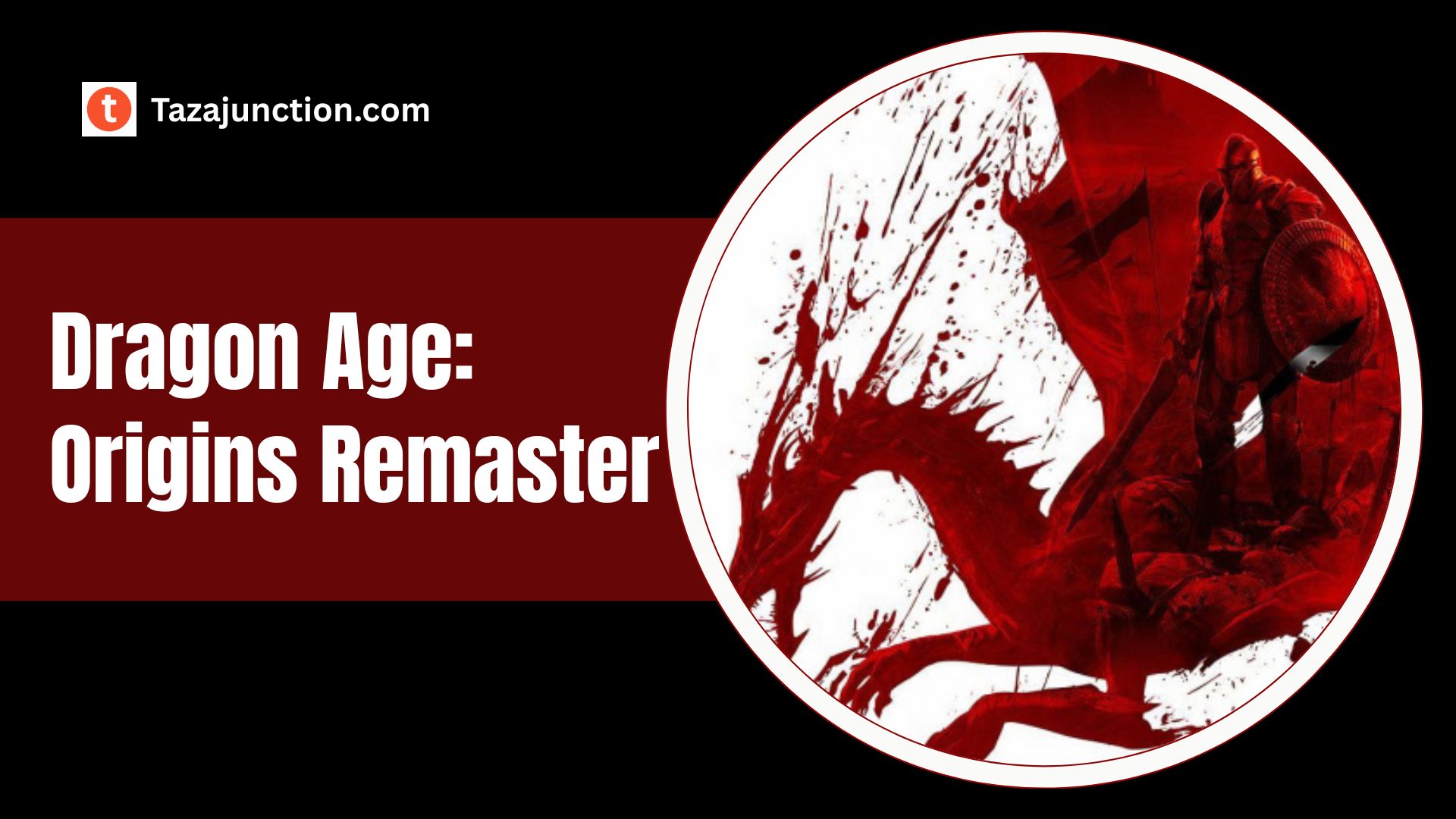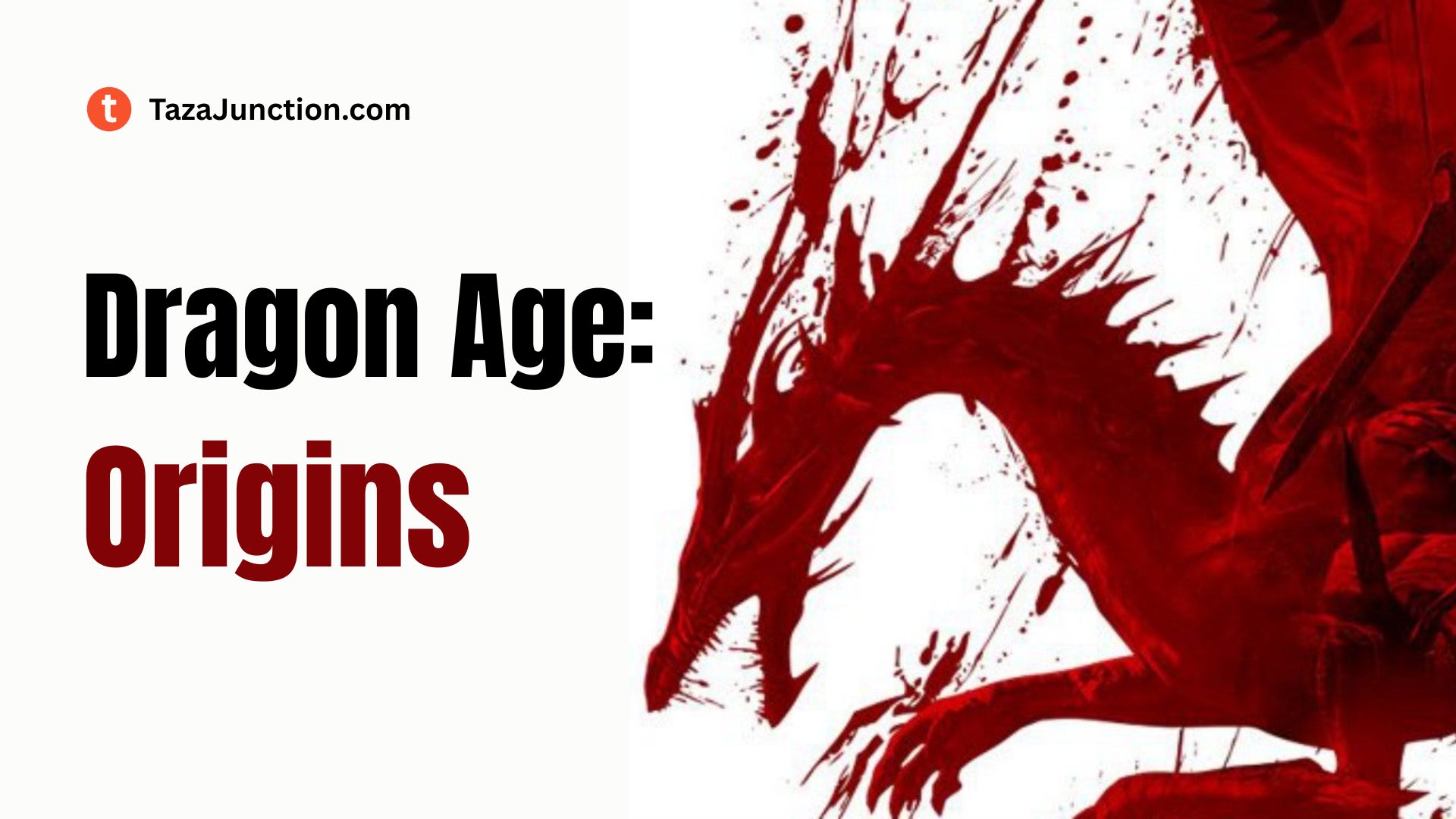It’s a question that’s echoed across forums, social media, and RPG fan communities for over a decade: Why has there never been a Dragon Age: Origins remaster? As beloved franchises like Mass Effect and The Last of Us receive definitive editions, remakes, or full graphical overhauls, fans of Dragon Age: Origins are still waiting.
Released in 2009, Dragon Age: Origins was a landmark moment for western RPGs. It brought deep role-playing mechanics, branching narrative paths, and a rich dark fantasy setting to players hungry for complexity and consequence.
But while its story and characters remain timeless, its graphics, UI, and gameplay systems have not aged gracefully. Calls for a Dragon Age: Origins remaster have only grown louder over the years.
Recently, a former BioWare executive finally addressed the topic in detail, shedding light on past efforts, technical roadblocks, and why a remaster may never become reality.
Table of Contents
A Classic That Deserves Modern Treatment
For many RPG fans, Dragon Age: Origins stands as a masterpiece of the genre. It introduced the world to Ferelden, the Grey Wardens, and moral choices with real consequences. From origin stories that shaped your character’s place in the world to decisions that changed the fate of entire regions, it was ambitious, raw, and deeply immersive.
Yet despite all that acclaim, Origins has aged. Compared to modern RPGs, its visuals are outdated, its controls feel stiff, and its UI is clunky by today’s standards. That’s why fans continue to campaign for a proper Dragon Age: Origins remaster—something that brings the same experience to a modern audience without losing what made it special.
What BioWare Has Said in the Past?
BioWare has remained relatively quiet on the topic of an Origins remaster. Over the years, several developers have acknowledged fan interest but avoided confirming whether it was ever in active development.
In a recent interview, a former executive producer at BioWare, who worked on the Dragon Age series for years, revealed that a Dragon Age: Origins remaster was, at one point, seriously considered. However, multiple factors—including time, cost, and engine limitations—ultimately caused the studio to shelve the idea.
Technical Limitations of the Original Engine

One of the biggest hurdles for a Dragon Age: Origins remaster is the game’s foundation. Origins was built using the Eclipse Engine, a proprietary BioWare system that predates the Frostbite engine used in newer titles like Dragon Age: Inquisition and Mass Effect: Andromeda.
According to the former exec, “The way Origins was built makes it extremely hard to scale up visually or make compatible with modern hardware without redoing vast amounts of code. We’re talking about rebuilding almost every system from scratch.”
That means a remaster wouldn’t just be a facelift. It would require extensive rebuilding—everything from animation pipelines to UI elements to combat mechanics might have to be reconstructed or reprogrammed entirely. Essentially, it’s not far off from developing a new game.
The Cost-Benefit Problem
Another major reason a Dragon Age: Origins remaster never materialized is the simple business reality: cost versus reward.
Remasters and remakes require teams, budgets, and timelines. While a Mass Effect Legendary Edition made commercial sense due to the trilogy’s unified engine and cohesive fanbase, Origins stands alone on a dated platform. A single-game remaster with a high development cost and uncertain return presents a financial risk.
BioWare and EA would have to pull resources from other projects—like Dragon Age: Dreadwolf—to support a remaster. With development already stretched thin across multiple franchises, decision-makers likely concluded it wasn’t the best use of time or money.
A Shift in Company Priorities
When Dragon Age: Origins released, BioWare was a very different studio. The company was known for complex RPGs with deep writing and systems-heavy gameplay. Over time, however, the studio shifted toward action-focused storytelling, especially under publisher EA’s influence.
This shift became evident with Dragon Age II and even more so with Inquisition, which balanced open-world design with accessibility. According to the former exec, “There was a perception internally that Origins was ‘too old school’ for today’s market. That made pushing for a remaster harder.”
The demand for a Dragon Age: Origins remaster may have existed, but convincing leadership to greenlight such a project—especially one that leaned into legacy design choices—was a constant uphill battle.
Modding Community and Fan Projects
Interestingly, the only reason Dragon Age: Origins has remained playable and somewhat modernized is due to the modding community. Fans have kept the game alive by improving textures, tweaking combat, and refining UI elements. While these modifications can’t substitute for a full remaster, they demonstrate the ongoing passion for the game.
Some fan-led projects have even attempted full overhauls or unofficial “remaster” mods, but their reach and quality remain limited due to legal restrictions and resource constraints. Still, the continued popularity of these mods shows that demand for a proper Dragon Age: Origins remaster is far from fading.
BioWare’s Current Focus: Dragon Age: Dreadwolf
While fans wait and hope, BioWare is focused entirely on the upcoming Dragon Age: Dreadwolf. Positioned as the fourth major entry in the series, Dreadwolf aims to move the franchise forward with new characters, an updated combat system, and fresh lore expansions.
Given the size of the team and the complexity of the project, BioWare likely won’t revisit Origins anytime soon. All eyes are on the success of Dreadwolf—a game the studio needs to deliver on after recent stumbles like Anthem and mixed reception to Andromeda.
A successful Dreadwolf could spark new interest in the franchise’s roots. But for now, a Dragon Age: Origins remaster remains on the sidelines.
What Fans Want: More Than Just Graphics?
It’s worth noting that fans don’t simply want prettier textures or 4K resolution. What they’re asking for is a remaster that respects the tone, complexity, and scope of the original game while updating it for modern systems.
That means:
- Bug fixes and optimization for modern hardware
- Improved inventory and UI systems
- Better control schemes for consoles
- Revamped combat animations and AI
- High-resolution textures and models
A full Dragon Age: Origins remaster would allow new players to experience the definitive version of a game that shaped modern RPG design. It’s about preservation just as much as innovation.
Final Thoughts: Will It Ever Happen?
So, will we ever get the Dragon Age: Origins remaster that fans crave? As of now, the outlook remains uncertain. Technical limitations, budget priorities, and shifting studio focus all stand in the way.
But if there’s one thing clear from both developer comments and community demand, it’s this: Origins still matters. It left a permanent mark on RPG storytelling and player agency. And even though it’s aging, it remains deeply relevant.
Perhaps after Dreadwolf launches, and if BioWare regains its footing, the studio may revisit the roots of the series. A remaster—done right—could not only preserve a classic but also reignite the passion of a community that never stopped believing in Ferelden, the Grey Wardens, and the original Dragon Age.
Until then, the dream of a Dragon Age: Origins remaster lives on—in mods, in memories, and in the hearts of RPG lovers everywhere.




